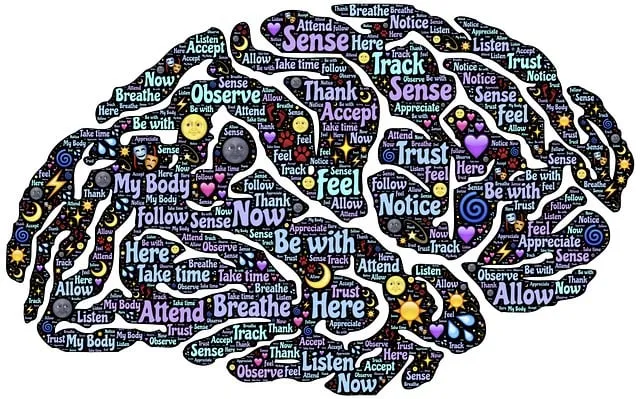The Kaiser Permanente Mental Health Access Center in Denver is a critical resource for trauma-related challenges, offering specialized services like cognitive-behavioral therapy and mindfulness practices. Through holistic approaches, the center supports residents in managing anxiety, depression, and PTSD stemming from traumatic events, promoting emotional well-being within the community. Despite high demand and staff burnout, innovations such as evidence-based coping skills, creative therapies, and digital tools aim to enhance access and create an inclusive healing environment.
Trauma support services are crucial for communities affected by adverse experiences, offering a lifeline for healing and recovery. This article delves into the essential role of organizations like the Kaiser Permanente Mental Health Access Center in Denver, Colorado. We explore how their initiatives cater to individuals navigating trauma, highlighting key components that facilitate effective care. Through examining real-world examples, we uncover innovations and challenges faced by such centers, providing insights for enhancing trauma-informed practices at similar facilities, including Kaiser Permanente’s Denver location.
- Understanding Trauma and Its Impact: A Foundation for Support Services
- The Role of Kaiser Permanente Mental Health Access Center in Denver
- Key Components of Effective Trauma Support Services
- Challenges and Innovations in Providing Trauma-Informed Care at the Center
Understanding Trauma and Its Impact: A Foundation for Support Services

Trauma is a profound and complex experience that can have lasting effects on an individual’s mental and emotional well-being. It stems from various sources, such as adverse childhood experiences, violent incidents, or prolonged stress, and often leads to a range of responses including anxiety, depression, and post-traumatic stress disorder (PTSD). Recognizing the impact of trauma is pivotal in establishing effective support systems.
The Kaiser Permanente Mental Health Access Center in Denver plays a vital role in this domain by providing specialized services tailored to address trauma-related issues. Through innovative approaches, they offer not just treatment but also tools for self-awareness exercises and emotional intelligence development, which are crucial aspects of depression prevention. By empowering individuals with these skills, the center facilitates healing and enables them to navigate life’s challenges more resiliently.
The Role of Kaiser Permanente Mental Health Access Center in Denver

The Kaiser Permanente Mental Health Access Center in Denver plays a pivotal role in supporting individuals affected by trauma and promoting emotional well-being. This specialized center offers a range of services designed to help Denver residents navigate their mental health challenges. By providing easy access to mental health professionals, the center ensures that support is readily available for those experiencing anxiety, depression, or other psychological issues stemming from traumatic events.
Focusing on holistic approaches, the Kaiser Permanente Mental Health Access Center employs innovative techniques such as cognitive-behavioral therapy and mindfulness practices. These methods are tailored to address not only the symptoms of trauma but also to foster self-esteem improvement and anxiety relief. The center’s commitment to Emotional Well-being Promotion Techniques makes it a vital resource in the Denver community, offering hope and healing to those who have experienced traumatic events.
Key Components of Effective Trauma Support Services

Effective trauma support services are built on a foundation of key components designed to foster healing and resilience. One prominent example is the Kaiser Permanente Mental Health Access Center in Denver, which prioritizes holistic care. This includes not only direct therapy but also educational resources, peer support groups, and access to mental wellness podcasts that promote Mind Over Matter principles. These services are tailored to address various trauma-related challenges, ensuring individuals have comprehensive tools for managing their moods and cultivating mental wellness.
The center leverages evidence-based practices to create a safe space where survivors can process traumatic experiences at their own pace. By combining individual counseling with group support, the program recognizes the power of community in recovery. Additionally, the Mental Wellness Podcast Series Production plays a vital role by offering accessible content that normalizes conversations around trauma and mental health, encouraging open dialogue and further empowering individuals on their journey to healing.
Challenges and Innovations in Providing Trauma-Informed Care at the Center

Providing trauma-informed care at centers like the Kaiser Permanente mental health access center in Denver faces unique challenges. One significant hurdle is addressing the high demand for services, often stemming from complex community issues such as systemic inequality and social determinants of health that contribute to trauma. Additionally, staff burnout prevention is a pressing concern, as frontline workers must be equipped to handle diverse and intense emotional needs while also managing their own well-being.
Innovations in trauma support aim to overcome these challenges. Centers are adopting evidence-based practices that prioritize coping skills development and resilience building. They’re implementing creative therapeutic approaches and integrating digital tools for enhanced access, particularly in depression prevention. By fostering an environment that encourages open communication and embraces diverse healing modalities, these initiatives strive to provide more effective, accessible, and sustainable trauma support, reflecting the evolving landscape of mental health care.
The article highlights the importance of trauma support services, as exemplified by the innovative work done at the Kaiser Permanente Mental Health Access Center in Denver. By understanding the profound impact of trauma and implementing effective key components, such centers play a crucial role in providing compassionate care. Despite challenges, continuous innovations in trauma-informed care ensure that individuals affected by traumatic events receive the necessary support. This model can serve as a blueprint for other healthcare providers, emphasizing the need for widespread access to quality trauma support services.






